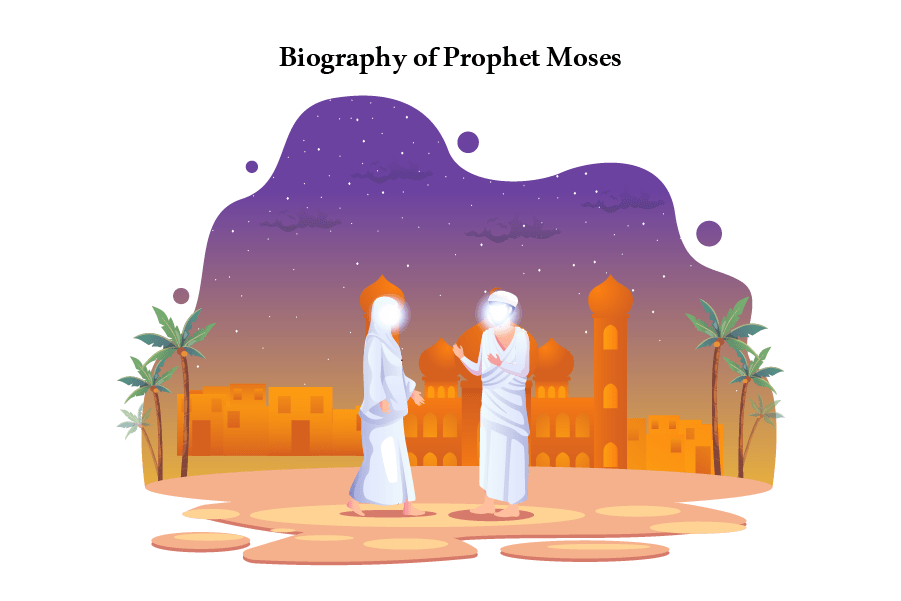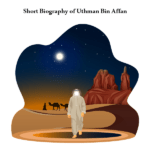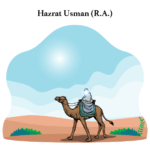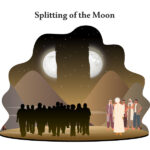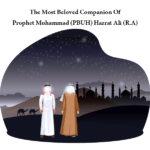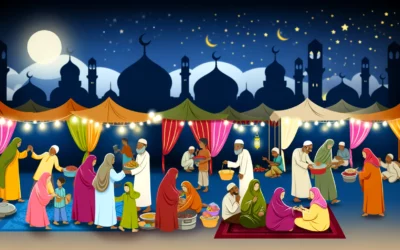Prophet Moses, also known as Musa in Arabic, is one of the most critical figures in Abrahamic religions, particularly Judaism, Christianity, and Islam. According to religious texts, Hazrat Musa was a prophet and messenger of God. He led the Israelites out of slavery in Egypt and received the Ten Commandments on Mount Sinai.
Prophet Moses’s Background
Prophet Musa was born in Egypt when the Israelites, Jacob’s descendants, were enslaved by the Pharaoh. Jochebed’s mother placed him in a basket on the Nile River to save him from the Pharaoh’s order to kill all male Israelite babies. Pharaoh’s daughter discovered the basket, took Musa in, and raised him as her son.
As a young man, Moses witnessed an Egyptian taskmaster mistreating an Israelite slave and killing him angrily. Fearing punishment, he fled to the land of Midian, where he met Jethro, a priest, and father-in-law. Moses married Jethro’s daughter, Zipporah, and became a shepherd.
One day, while tending his flock, Musa encountered a burning bush not consumed by the flames. God spoke to him from the bush and commanded him to return to Egypt to free the Israelites from slavery. With the help of his brother Aaron, Musa confronted the Pharaoh and demanded the release of the Israelites. After a series of plagues, the Pharaoh agreed to let them go.
As they journeyed through the wilderness, God provided food and water for the Israelites, and he received the Ten Commandments on Mount Sinai. However, when he returned from the mountain, he found that the Israelites had made a golden calf and were worshiping it. He became angry and smashed the tablets but later returned to the mountain to receive a new set of commandments.
After leading the Israelites, in the wilderness for forty years, Moses died on Mount Nebo and was buried by God. According to Jewish tradition, Moses the greatest prophet who ever lived and a mediator between God and the people of Israel.
In many religious traditions, he is a hero and an example of faith and obedience. His life and teachings continue to inspire people of different faiths today.
Who was Moses’ wife
According to the biblical account, Moses married Zipporah, the daughter of a Midianite priest named Jethro. They met when Moses fled Egypt after killing an Egyptian and settled in Midian. There, he came to the aid of Zipporah and her sisters when some shepherds were harassing them. Jethro invited Moses to stay with them and eventually gave him Zipporah in marriage.
Moses and Zipporah had two sons, Gershom and Eliezer. However, their marriage was not without challenges. Zipporah quickly circumcised their son and touched Moses’ feet with the foreskin to stop God’s wrath.
It is unclear in the bible account about Moses and Zipporah’s married life. And what happened to her after Musa returned to Egypt to lead the Israelites out of slavery? Some speculate that she may have stayed behind in Midian with their children. At the same time, others suggest that she may have joined Musa and the Israelites on their journey through the wilderness.
Zipporah played an essential role in his early years and the fulfillment of his mission as a prophet of God.
Governance of Prophet Moses
Moses’ governance was characterized by his strong leadership, wisdom, and adherence to the principles of justice and equality. God chose him to lead the Israelites, and he demonstrated his leadership skills by successfully leading them out of Egypt and through the wilderness for forty years.
Prophet Musa was also responsible for establishing a governance system based on the principles of justice and equality. He appointed judges and officials to help him administer justice and resolve disputes among the people, and he emphasized the importance of treating all community members fairly and impartially.
A moral leader who emphasized the importance of ethical behavior and obedience to God’s commandments. He received the Ten Commandments on Mount Sinai and taught the Israelites to live by these commandments, which include prohibitions against murder, theft, adultery, and other immoral behavior.
The governance of Prophet Musa, strong leadership, commitment to justice and equality, and emphasis on ethical behavior and obedience to God’s commandments. His legacy continues to inspire and guide people of faith today.



